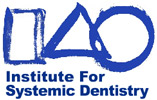The prevalence of pediatric tooth decay—sometimes, aggressive decay—is rising, even among children who have nutritious diets that are low on sugar. Research points toward systemic problems, caused by factors such as radiation exposure, hormonal abnormalities, reaction to foreign proteins in foods, and/or improper mineralization (hypomineralization).
Hypomineralization, caused primarily by an insufficient quantity of minerals in the diet, increases a child’s susceptibility to tooth decay; other possible contributors to hypomineralization include malabsorption and poor digestion. The systemic theory of decay suggests that nutritional and oral-hygiene factors in decay become relevant only after hypomineralization has begun. Proper mineralization (or the lack thereof) appears to be the key causal factor in decay resistance and decay susceptibility.
There are specific patterns of tooth decay. The age of the patient is sometimes a factor in these patterns.
- Baby teeth vs. adult teeth. Baby teeth are formed before birth; their development and health is subject to maternal nutrition (or malnutrition), so it is possible for a child to be predisposed to decay issues before ever eating or drinking. On the other hand, the health of adult teeth, which replace baby teeth during childhood, is dependent entirely upon an individual child’s nutrition and metabolism.
- Anterior (front) vs. posterior (back) tooth patterns. The anterior teeth generally develop first; problems with these teeth may have begun during a child’s first three years. Decay in the posterior teeth may indicate problems acquired after age three. Decay in both types suggest a longer-term problem.
- Contra-lateral tooth patterns. Decay in teeth on opposite sides of the mouth may indicate a system problem. Acupuncture shows that certain teeth are linked by the body’s meridians. The canine teeth in particular are considered “diagnostic” teeth, as they are linked to the liver meridian; systemic liver problems may present as decay in the canines.
- Decay clustering. In this decay pattern, multiple teeth linked to related meridians are affected. These may indicate systemic problems in the correlated organs and body systems.
- Post-eruption susceptibility. All teeth (both baby and adult) are subject to decay during the first two years after those teeth erupt. At the time of eruption, teeth undergo another phase of mineralization; during this time, they suffer increased susceptibility to decay.
Breastfeeding a baby may serve to improve jaw growth and development. However, if the mother’s milk is insufficiently nutritious (due to health problems or the presence of toxins) or the baby’s health prevents efficient metabolism of milk, the child may be placed at a nutritional or systemic disadvantage that could contribute to future susceptibility to decay.
Poor jaw development in children generally is not caused primarily by genetics. Contributing factors to this condition include poor diet, mineral imbalances, interrupted regulation of jaw growth (due to toxins in the environment), and myofunctional problems (disorders in face and mouth muscles). In the first half of the 20th century, Dr. Weston Price, a dentist who traveled the world researching the health of indigenous peoples, discovered that people with properly formed dental jaw growth and a particular balance of nutrients in their diets rarely suffered from tooth decay.
A holistic nutritional dentist can assess your child’s jaw regulation and determine if the child is receiving a proper diet conducive to good jawbone and tooth health. Parents, though, can determine myofunctional and jaw development progress simply by looking inside the child’s mouth and observing the action of his or her swallowing function and the spacing of the child’s teeth. The dentist can classify a child’s jaw development according to occlusion (a proper bite) or malocclusion (a “bad” bite).
Teenagers are commonly being diagnosed with gingivitis and bone loss—oral problems that, in past, generally did not appear until a patient was in his or her thirties. As tooth and jaw development becomes complete during the teen years, soft-tissue infections can occur in the gums. During this time, the hormones produced in a teenage body cause the gums to become more sensitive to infection and inflammation. A diet of raw and nutrient-dense foods contribute to beneficial flora (microorganisms) in the mouth, but a poor diet of sugary and processed foods—which modern teens are prone to consume—encourages the growth of harmful flora, which can initiate dental disease. Good oral hygiene, including daily brushing and flossing, is helpful for maintaining “good” flora, but other factors, such as a healthy diet, are equally important for preventing tooth decay.
You can bring your child for his or her first dental examination after all the baby teeth are in and around the time that jaw growth should be starting—generally, this is between three and five years of age. However, a parent should bring the child in before then if a dental or other oral problem is observed.
When you enroll your child in a pediatric wellness program, the child benefits by:
- Getting a lifetime lesson about taking responsibility for his or her health.
- Learning good nutritional habits that contribute to systemic wellness, which greatly contributes to good oral health.
- Getting a head start on preventing dental disease.
Our next article discusses the many benefits of establishing a pediatric wellness program for your child.
The Center for Systemic Dentistry provides the highest level of care and follow-up to ensure that your child’s teeth remain healthy and sound well into adulthood. Located in Berkeley Heights, New Jersey, we are committed to being the state’s leading dental practice that focuses on holistic, healing-focused dentistry. Dr. Philip Memoli and his staff are ready to repair the damage caused by childhood tooth decay and ensure that our pediatric patients are committed to maintaining healthy teeth as they grow. Call us today at (908) 464-9144 or contact us via our online contact form.
Read more about pediatric dentistry and child dental wellness at http://www.holisticdentistrynj.com/our-services/pediatric-dentistry/.








